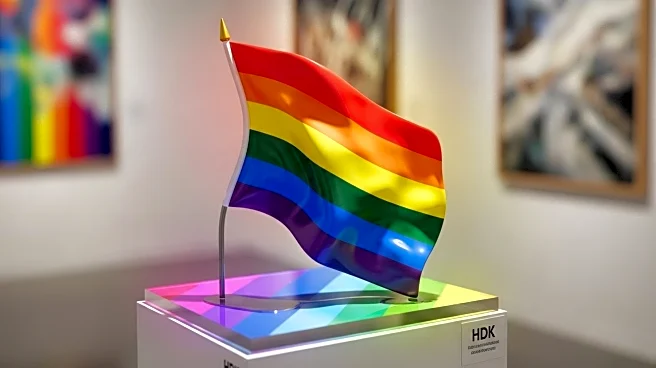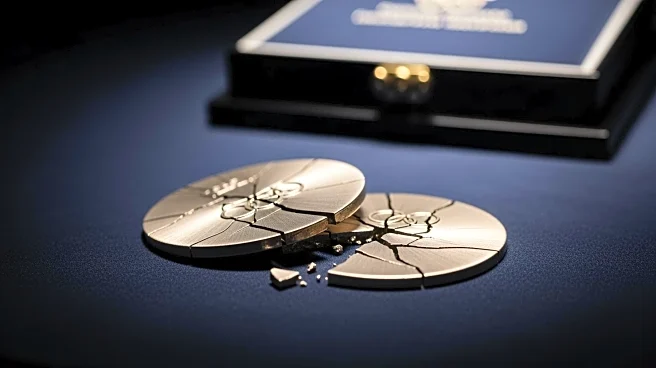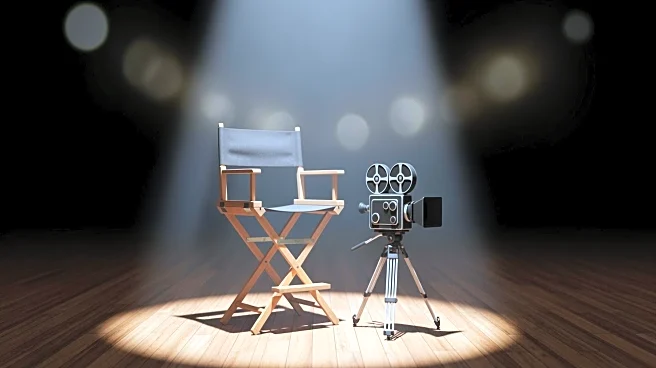What's Happening?
During Frieze week in Seoul, the Sunpride Foundation is presenting an advance sample of its ongoing Spectrosynthesis exhibition series, which focuses on LGBTQ+ Asian art. The exhibition, titled 'Off-site 2: Eleven Episodes,' is being held at Kukje Gallery K2 and other locations, featuring performances by artists such as Yagwang, Younghae Chang, Ru Kim, and Jimin Hah. The main show is scheduled to take place at the Art Sonje Center next year, although specific dates have not been confirmed. The exhibition aims to incorporate gender sensitivity alongside queer narratives, reflecting contemporary Korean society's experiences with gender, power, and identity.
Why It's Important?
The exhibition is significant as it highlights the growing visibility and acceptance of LGBTQ+ communities in South Korea, a country where debates around gender and representation are increasingly prominent. By showcasing diverse gender identities and challenging traditional power structures, the exhibition contributes to the ongoing discourse on gender equality and representation. It provides a platform for emerging Korean female and genderqueer artists, fostering a more inclusive art scene and encouraging dialogue on social issues. This cultural event may influence public perception and policy regarding gender and LGBTQ+ rights in South Korea.
What's Next?
The Sunpride Foundation plans to continue its Spectrosynthesis exhibition series, with the main show at the Art Sonje Center expected next year. As the exhibition progresses, it may further engage with local communities and influence cultural and social discussions in South Korea. The foundation's efforts could lead to increased support for LGBTQ+ artists and initiatives, potentially impacting future exhibitions and public policies. Stakeholders such as artists, cultural institutions, and advocacy groups may respond by promoting similar events and advocating for broader acceptance and rights for LGBTQ+ individuals.
Beyond the Headlines
The exhibition's focus on gender sensitivity and diverse identities highlights deeper societal issues in South Korea, where gender roles and inequalities are often debated. By addressing these topics, the exhibition encourages a reevaluation of traditional norms and power dynamics, potentially leading to long-term cultural shifts. It also underscores the role of art in challenging societal structures and fostering inclusivity, which could inspire other countries in the region to follow suit. The exhibition's impact may extend beyond the art world, influencing broader social and cultural movements.









